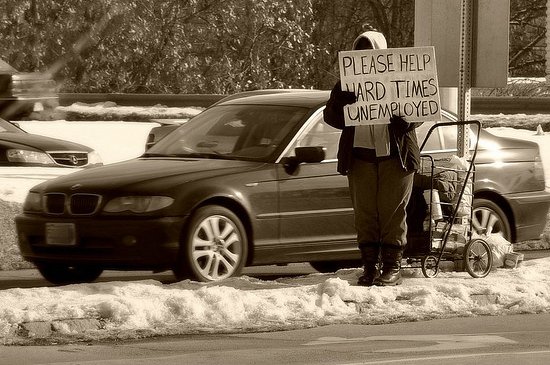In a competitive job market, employers can be increasingly picky about whom they hire, even for entry level jobs. Criminal record screening is standard for most jobs but, increasingly, decent credit is a criteria. Historically, it was only jobs that involved finances, retail or cash handling that triggered a credit check but, more and more, employers are now implementing credit checks as part of their pre-employment screening for jobs where credit worthiness doesn't seem relevant.
If you're in a situation where you can't afford to pay your bills and are also job hunting, you may find that your financial troubles are a Catch-22. You can't pay your bills because you can't find a decent job and can't find a decent job because you can't pay your bills. This is no way to live and can make your life so much more stressful. This is not a situation that will resolve itself, but it is one that you can take control of and make better almost immediately.
For those that have a mound of unsecured debts they can't afford to pay (credit cards, medical bills, etc) and older items showing unpaid on their credit report, filing a Chapter 7 bankruptcy can make an immediate difference. As soon as your creditors receive notice that you've filed bankruptcy, they should stop trying to collect the debts (the law requires this). And as soon as you receive your discharge from the court (within three to four months), your credit report should show the bankruptcy information.
Once the bankruptcy hits your credit report, any accounts that were included in the bankruptcy will be updated to say “included in bankruptcy.” If you have any lingering unpaid utility accounts, old cell phone or cable bills or a car loan for a vehicle that was repossessed, those will also be wrapped up in the bankruptcy. If an employer sees a pile of unpaid and past due debt, it's a black mark against you that can cost you a job. But bankruptcy converts these to things of the past.
Many government jobs require a credit screening and anything with a security clearance will require clean credit. A roster of unpaid debts and late bills can definitely cost you a job, but a bankruptcy shows that you are addressing the issue and that you are now current on your obligations. This can mean the difference between “No way” to “Welcome aboard.” A bankruptcy on your credit record is much preferred by employers to a pile of aging and unpaid debts.
If you're in a situation where you can't afford to pay your bills and are also job hunting, you may find that your financial troubles are a Catch-22. You can't pay your bills because you can't find a decent job and can't find a decent job because you can't pay your bills. This is no way to live and can make your life so much more stressful. This is not a situation that will resolve itself, but it is one that you can take control of and make better almost immediately.
For those that have a mound of unsecured debts they can't afford to pay (credit cards, medical bills, etc) and older items showing unpaid on their credit report, filing a Chapter 7 bankruptcy can make an immediate difference. As soon as your creditors receive notice that you've filed bankruptcy, they should stop trying to collect the debts (the law requires this). And as soon as you receive your discharge from the court (within three to four months), your credit report should show the bankruptcy information.
Once the bankruptcy hits your credit report, any accounts that were included in the bankruptcy will be updated to say “included in bankruptcy.” If you have any lingering unpaid utility accounts, old cell phone or cable bills or a car loan for a vehicle that was repossessed, those will also be wrapped up in the bankruptcy. If an employer sees a pile of unpaid and past due debt, it's a black mark against you that can cost you a job. But bankruptcy converts these to things of the past.
Many government jobs require a credit screening and anything with a security clearance will require clean credit. A roster of unpaid debts and late bills can definitely cost you a job, but a bankruptcy shows that you are addressing the issue and that you are now current on your obligations. This can mean the difference between “No way” to “Welcome aboard.” A bankruptcy on your credit record is much preferred by employers to a pile of aging and unpaid debts.

